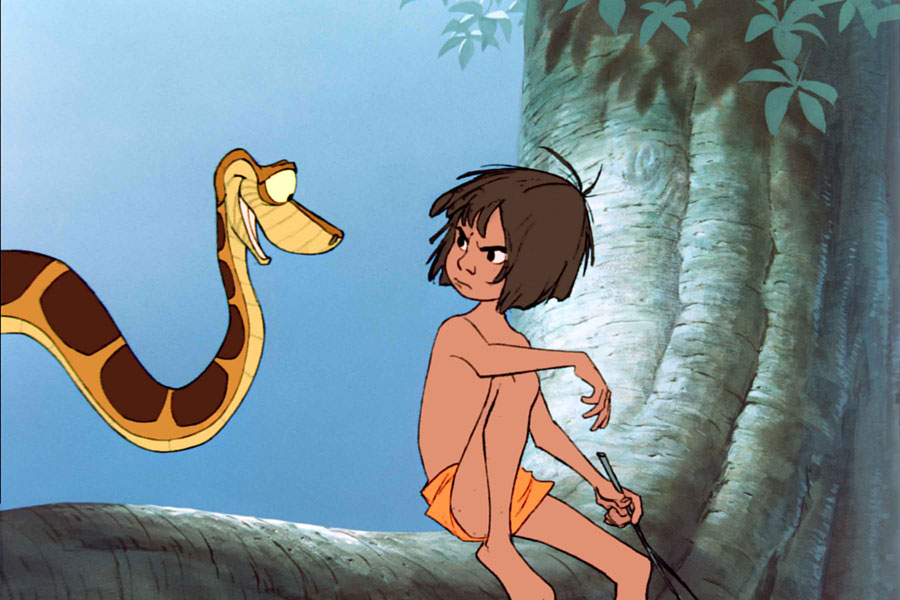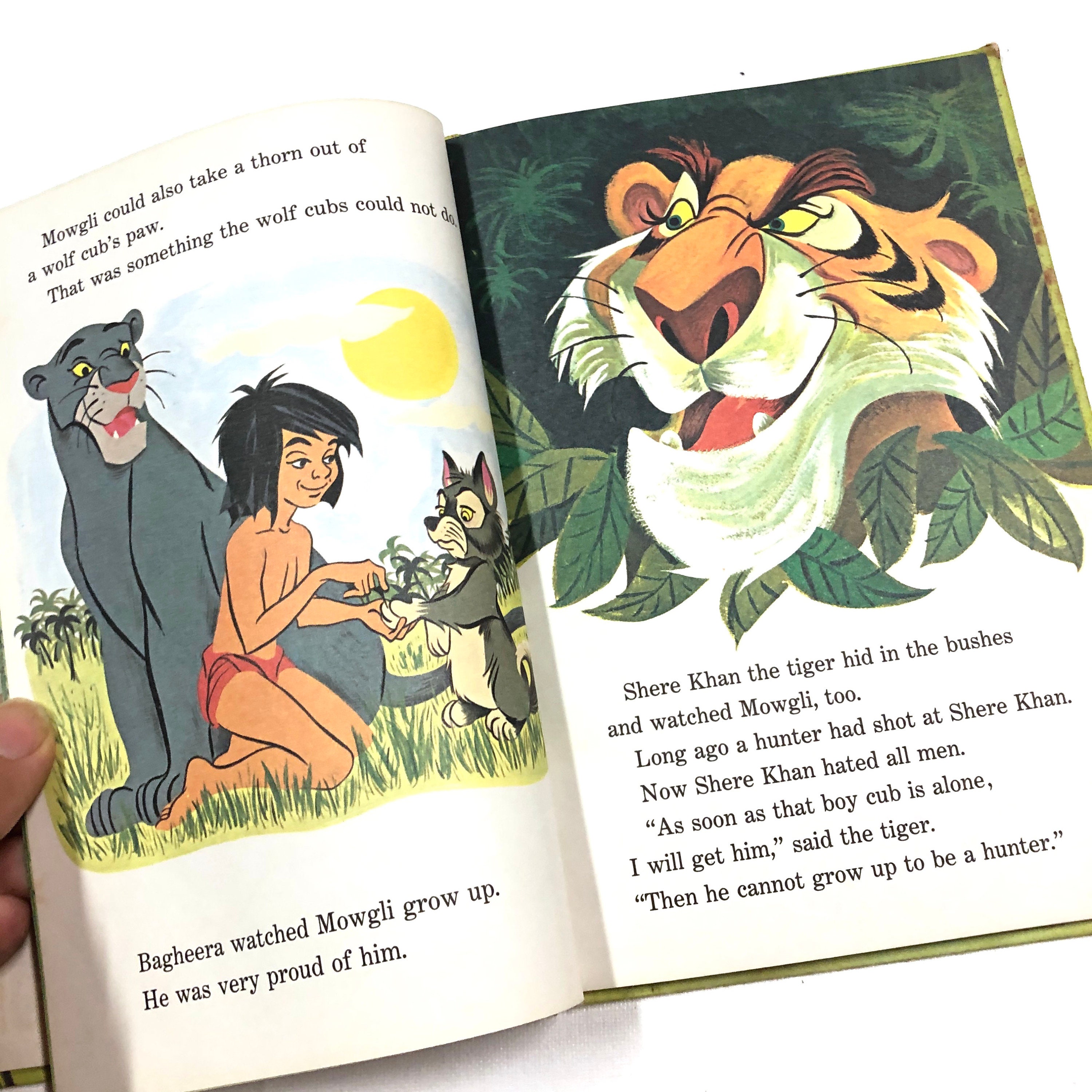

Kipling then proceeded to write the stories of Mowgli's childhood in detail in The Jungle Book. By the end of the story, Mowgli has a son and is back to living with his wolf brothers. Mowgli marries the daughter of Gisborne's butler, Abdul Gafur. Later, Gisborne learns the reason for Mowgli's almost superhuman talents he was raised by a pack of wolves in the jungle (explaining the scars on his elbows and knees from going on all fours). Muller also invites Mowgli to join the service, to which Mowgli agrees. Muller, the head of the Department of Woods and Forests of India as well as Gisborne's boss, meets Mowgli, checks his elbows and knees, noting the callouses and scars, and figures Mowgli is not using magic or demons, having seen a similar case in 30 years of service. He asks him to join the forestry service. "In the Rukh" describes how Gisborne, an English forest ranger in the Pench area in Seoni at the time of the British Raj, discovers a young man named Mowgli, who has extraordinary skills in hunting, tracking, and driving wild animals (with the help of his wolf brothers). The Mowgli stories, including "In the Rukh", were first collected in chronological order in one volume as The Works of Rudyard Kipling Volume VII: The Jungle Book (1907) (Volume VIII of this series contained the non-Mowgli stories from the Jungle Books), and subsequently in All the Mowgli Stories (1933). That account was first published in the first volume of Sleeman's Journey Through the Kingdom of Oude in 1848-1850 (1858) and reprinted in 1852 as An Account of Wolves Nurturing Children in Their Dens, by an Indian Official and in The Zoologist (1888 12 (135): 87-98). Part of Kipling's inspiration for the story of Mowgli is believed to have been William Henry Sleeman's account of six cases in India in which wild children had been raised by wolves.

Kipling stated that the first syllable of "Mowgli" should rhyme with "cow." However Disney had the first syllable rhyme with "go." Kipling's daughter got upset about this. It does not mean 'frog' in any language that I know of." Kipling later said "Mowgli is a name I made up. In the stories, the name Mowgli is said to mean "frog", describing his lack of fur. He is a feral boy from the Pench area in Seoni, Madhya Pradesh, India, who originally appeared in Kipling's short story "In the Rukh" (collected in Many Inventions, 1893) and then became the most prominent character in the collections The Jungle Book and The Second Jungle Book (1894–1895), which also featured stories about other characters. Mowgli ( / ˈ m aʊ ɡ l i/) is a fictional character and the protagonist of Rudyard Kipling's The Jungle Book stories.

An illustration from The Second Jungle Book (1895) Mowgli by John Lockwood Kipling (father of Rudyard Kipling).


 0 kommentar(er)
0 kommentar(er)
